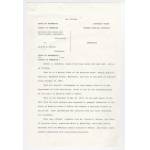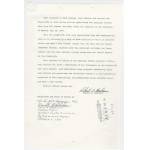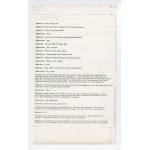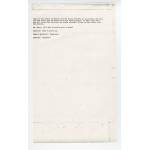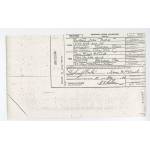Marriage License Application and Affidavit in Baker v. Nelson
1/8/1971
Add to Favorites:
Add all page(s) of this document to activity:
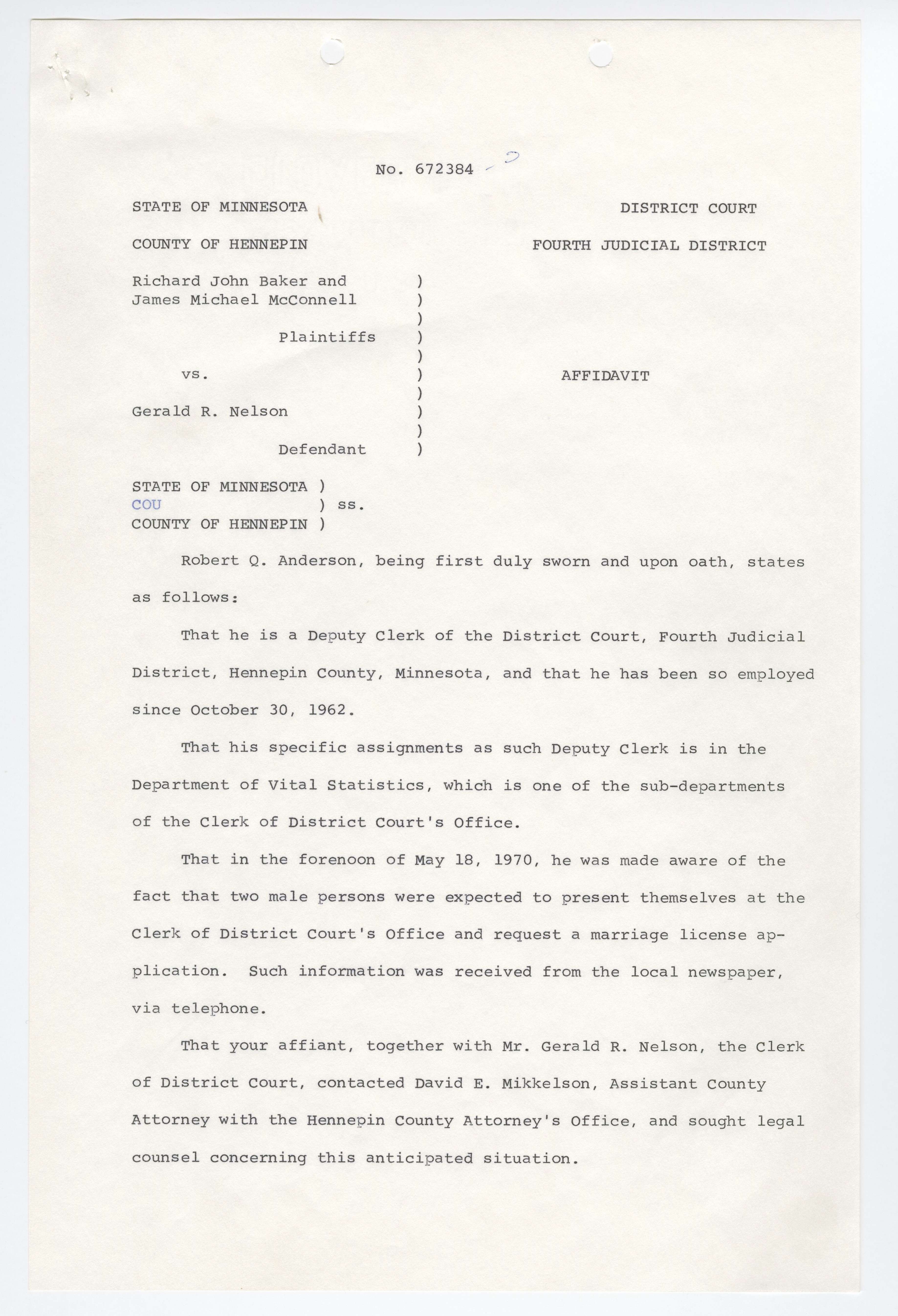
Add only page 1 to activity:
Add only page 2 to activity:
Add only page 3 to activity:
Add only page 4 to activity:
Add only page 5 to activity:
The earliest same-sex marriage case to be reviewed by the Supreme Court was Baker v. Nelson in 1972. On May 18, 1970, University of Minnesota students Richard Baker and James Michael McConnell submitted an application for a marriage license in Minneapolis, Minnesota.
The deputy clerk of the court, Robert Anderson, accepted their application, but would not issue a license unless the County Attorney approved; the application was later denied.
Baker and McConnell took their case to a Minnesota District Court, which dismissed the couple's claims, and then to the state Supreme Court, which affirmed the lower court's ruling. As part of these proceedings, Robert Anderson, the Deputy Clerk of the District Court, composed this recollection (affidavit) of his interaction with Baker and McConnell.
On October 10, 1972, Baker and McConnell appealed to the U.S. Supreme Court. It denied their claim, stating "The appeal is dismissed for want of a substantial federal question," meaning the Court decided the issue did not directly relate to Federal laws.
The deputy clerk of the court, Robert Anderson, accepted their application, but would not issue a license unless the County Attorney approved; the application was later denied.
Baker and McConnell took their case to a Minnesota District Court, which dismissed the couple's claims, and then to the state Supreme Court, which affirmed the lower court's ruling. As part of these proceedings, Robert Anderson, the Deputy Clerk of the District Court, composed this recollection (affidavit) of his interaction with Baker and McConnell.
On October 10, 1972, Baker and McConnell appealed to the U.S. Supreme Court. It denied their claim, stating "The appeal is dismissed for want of a substantial federal question," meaning the Court decided the issue did not directly relate to Federal laws.
This primary source comes from the Records of the Supreme Court of the United States.
National Archives Identifier: 26318353
Full Citation: Affidavit of Robert Anderson with Exhibits from Baker v. Nelson; 1/8/1971; Baker v. Nelson, Case # 71-1027; Appellate Jurisdiction Case Files, 1792 - 2010; Records of the Supreme Court of the United States, Record Group 267; National Archives at Washington, DC. [Online Version, https://www.docsteach.org/documents/document/robert-anderson-affadavit, April 26, 2024]Activities that use this document
- The Long Struggle for LGBTQ+ Civil Rights
Created by the National Archives Education Team
Rights: Public Domain, Free of Known Copyright Restrictions. Learn more on our privacy and legal page.



